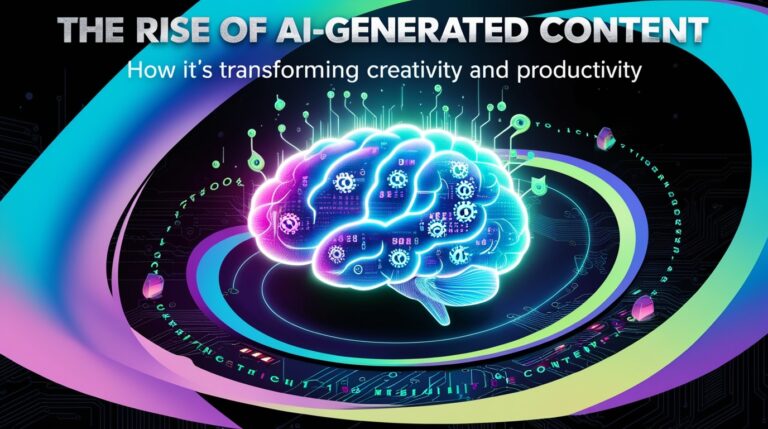As the climate crisis intensifies, the push for sustainable solutions has never been more urgent. In 2024, innovation is at the forefront of the global effort to combat environmental challenges. From groundbreaking technologies to creative strategies for reducing waste, these advancements are driving a greener, more sustainable future.
- Renewable Energy Breakthroughs
Renewable energy is at the heart of the sustainability revolution, and 2024 is witnessing major advancements in this field:
Next-Generation Solar Panels: Solar panels are becoming more efficient and affordable. Innovations such as perovskite solar cells, which promise higher energy conversion rates, are revolutionizing the way we harness sunlight.
Offshore Wind Farms: The expansion of floating wind turbines enables countries with limited coastline to generate wind energy in deeper waters, significantly increasing capacity.
Energy Storage: Breakthroughs in battery technology, such as solid-state batteries, are making renewable energy storage more efficient, addressing the intermittency of solar and wind power.
- Green Architecture and Urban Design
Cities are embracing sustainable practices to combat urbanization’s environmental toll:
Vertical Forests and Green Roofs: Buildings adorned with greenery not only reduce carbon footprints but also improve air quality and urban biodiversity.
Net-Zero Buildings: Smart energy management systems are enabling homes and commercial buildings to generate as much energy as they consume, dramatically reducing greenhouse gas emissions.
Eco-Urban Planning: Cities like Copenhagen and Singapore are leading the way in creating pedestrian-friendly spaces, reducing reliance on cars, and integrating renewable energy into urban infrastructure.
- Sustainable Transportation
The transportation sector is undergoing a green revolution:
Electric Vehicles (EVs): With advancements in battery technology and charging infrastructure, EVs are more accessible than ever. Companies are also innovating with electric buses, trucks, and even airplanes.
Hydrogen Fuel Cells: Hydrogen-powered vehicles are gaining traction as a clean alternative to fossil fuels, with applications in heavy-duty transport and industrial processes.
Micromobility Solutions: Bikes, e-scooters, and compact urban vehicles are transforming how people commute in crowded cities, reducing traffic congestion and emissions.
- Circular Economy Innovations
The circular economy aims to minimize waste and maximize resource efficiency:
Revolutionizing Recycling: AI-powered recycling systems can sort waste more effectively, improving recycling rates. Chemical recycling methods are also emerging, breaking down materials like plastic into their original components.
Reusable Packaging: Startups and major companies are adopting reusable packaging solutions, such as refillable containers and biodegradable materials, to reduce single-use plastics.
Upcycling Waste: Innovations in upcycling are transforming discarded materials into high-value products, from fashion items to construction materials.
- Sustainable Agriculture and Food Tech
The global food system is being reimagined to feed a growing population sustainably:
Regenerative Farming: This method restores soil health, captures carbon, and boosts biodiversity, creating a sustainable agricultural model.
Lab-Grown Meat: Cultivated meat is entering mainstream markets, reducing the environmental impact of traditional livestock farming.
Vertical Farming: High-tech indoor farms use minimal water and land while producing fresh, pesticide-free crops year-round.
- Breakthroughs in Water Conservation
Water scarcity is a critical global issue, and innovations are helping conserve and reuse this vital resource:
Desalination Advancements: Energy-efficient desalination plants are turning seawater into drinkable water at lower costs.
Smart Irrigation: AI and IoT technologies enable farmers to optimize water usage, reducing waste and improving crop yields.
Water Recycling Systems: Cities are implementing closed-loop systems to treat and reuse wastewater for industrial and agricultural purposes.
- Carbon Capture and Storage (CCS)
Carbon capture technologies are scaling up to reduce greenhouse gas emissions:
Direct Air Capture (DAC): Facilities are being developed to remove CO2 directly from the atmosphere, storing it underground or repurposing it for industrial use.
Nature-Based Solutions: Projects like reforestation and wetland restoration are capturing carbon naturally while supporting ecosystems.
The Path Ahead
While the sustainability revolution is making great strides, its success depends on collective action. Governments, businesses, and individuals must collaborate to accelerate the adoption of these innovations.
2024 is shaping up to be a pivotal year for sustainable development. With groundbreaking technologies and global commitment, the dream of a greener future is becoming a reality—one innovation at a time.






